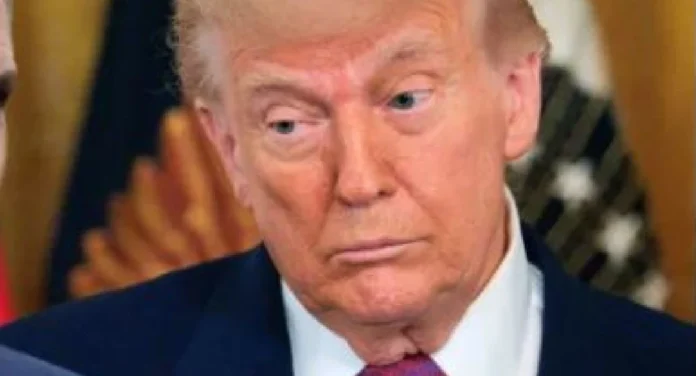By Kenneth Tiven
In business, on television, and in political office, Donald Trump’s signature style has always been unmistakable: domination. Now in the fifth month of his second presidential term, that instinct is being transformed into policy. With a loyal inner circle and an increasingly compliant Congress, president Trump appears to be following an ideological roadmap aimed at cementing his control over both domestic and global political narratives.
Immigration and trade have become the daily drivers of his political messaging, setting the tone across platforms. Yet, in courtroom after courtroom, federal judges continue to push back. The judiciary has repeatedly blocked key Trump initiatives, slowing—but not stopping—what critics call an assault on America’s constitutional democracy.
In an unprecedented act, Trump recently seized control of California’s National Guard from Governor Gavin Newsom and deployed over 700 active-duty Marines to Los Angeles to carry out a sweeping immigration raid. Legal experts say there is no condition that overrides the Posse Comitatus Act, which prohibits federal troops from acting as domestic law enforcement. Trump’s move, however, signals that traditional legal restraints are of little concern to his administration.
The spectacle of military might was amplified by a grand parade in Washington DC, nominally in honour of the US Army’s 250th anniversary, but widely interpreted as a personal show of force ahead of Trump’s 79th birthday on June 14. Historically, such displays have been reserved for celebrating military victories—World War II, for instance—not for reinforcing political dominance.
Critics say this show of strength is a façade. California Governor Gavin Newsom, whose emergency address was broadcast nationwide, minced no words: “What we’re witnessing is not law enforcement—it’s authoritarianism. What Donald Trump wants most is your fealty. Your silence. To be complicit in this moment. Do not give in to him.” Newsom condemned the deployment as “a military dragnet across Los Angeles… weakness masquerading as strength.”
Meanwhile, Trump continues to consolidate control in Congress, treating elected Republicans more like employees than legislators. He demanded that the House and Senate pass a single massive piece of legislation—the 2026 “Big Beautiful Budget Bill”—which runs over 1,000 pages. It is larded with corporate tax cuts, gifts to political allies, and harsh cuts to Medicare and social programmes that disproportionately affect lower-income Americans. Despite this, the bill passed the House by a single vote.
Now in the Senate, the Bill is facing sharp criticism, including from unlikely quarters. Tech mogul Elon Musk has threatened to amend it with what he called his “proverbial DOGE chainsaw,” potentially sending it back to the House for re-negotiation. A budget agreement is mandatory to avoid a national default and economic stagnation.
While Trump’s hardcore base is thrilled by his aggressive tactics, a majority of Americans remain unconvinced. A recent Quinnipiac poll shows only 38 percent of registered voters approve of Trump’s performance, while 54 percent disapprove. Concerns are rising not just about Trump, but about the competence of his key cabinet officials overseeing health, defence, and finance—many of whom have polling numbers as weak as the president’s.
Internationally, the economic picture is dimming. The World Bank and the Organization for Economic Cooperation and Development both predict US growth will decline sharply, from 2.8 percent in 2025 to just 1.4 percent in 2026. Meanwhile, Trump is scrambling to reach a tariff agreement with China to secure critical rare earth minerals needed for US military manufacturing. China, holding a strategic edge, has withheld exports until terms are settled.
Malcolm Nance, a counter-terrorism expert and former Navy intelligence officer, drew chilling historical parallels when analyzing Trump’s recent moves. He cited the president’s own inflammatory words about Los Angeles: “A once great American City… invaded and occupied by illegal aliens and criminals… violent, insurrectionist mobs… Order will be restored, the illegals will be expelled, and Los Angeles will be set free.”
Nance was blunt in response: “To make protest look like rebellion makes rebellion look like terrorism. That’s how history’s worst tyrants operated—Hitler, Stalin, Pol Pot. Trump is borrowing from their playbook.”
Even as Trump-friendly media celebrate each crackdown, the country appears to be approaching a crossroads. Is this projection of power real strength—or the last, desperate flex of a president out of step with a democratic nation?
—The writer has worked in senior positions at The Washington Post, NBC, ABC and CNN and consults for several Indian channels


